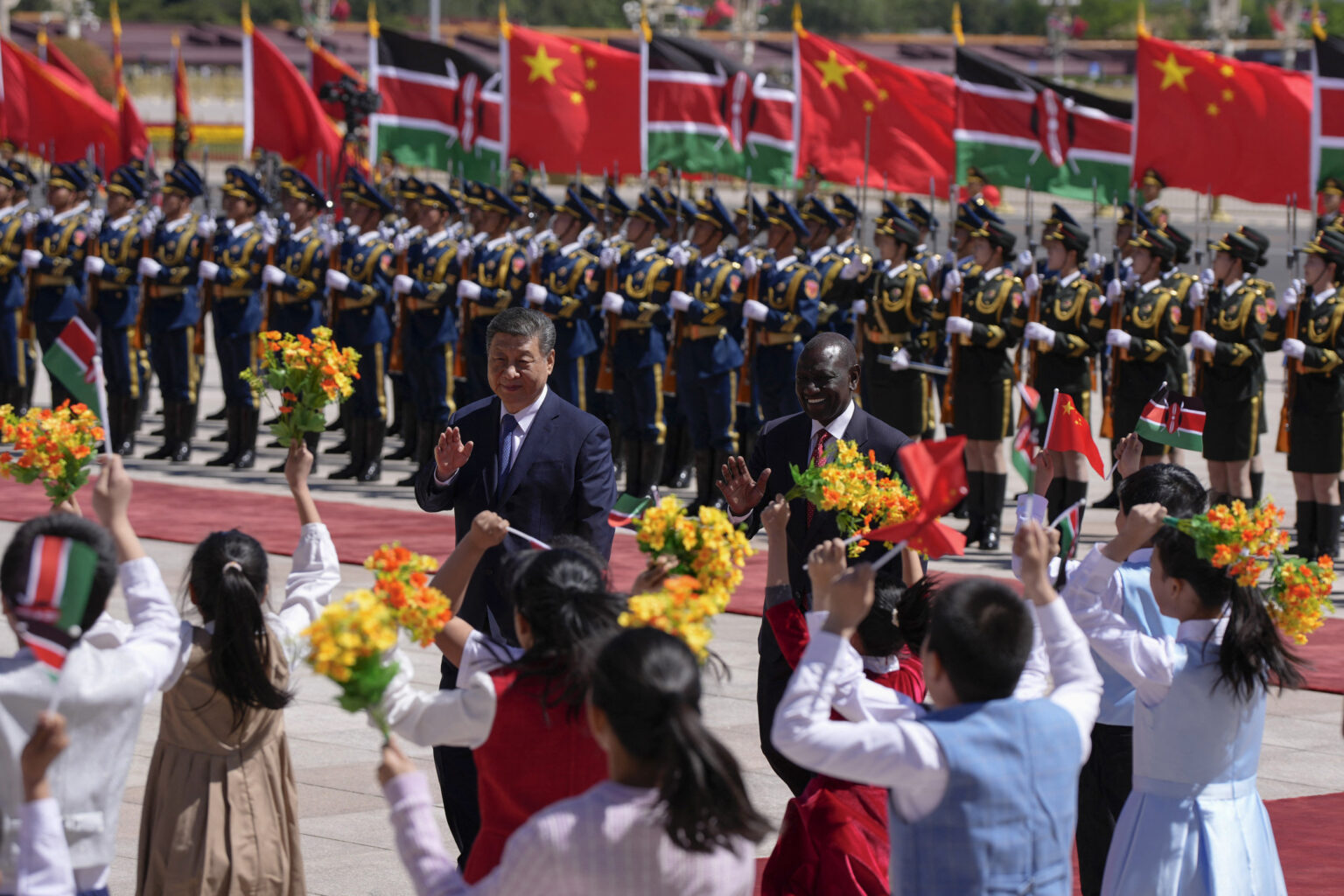Views of China and its leader, Xi Jinping, have improved slightly among many people around the world over the past year while the opposite is true for the United States and President Donald Trump, according to survey results provided by the Pew Research Center.
Despite the improvement for China, views of it are more unfavorable than favorable in the 16 high-income and nine middle-income countries surveyed. In most countries, people also lacked confidence in Xi to do the right thing on world affairs.
People in many of the 25 countries increasingly see China as the world’s top economic power, Pew said.
Why It Matters
The survey of more than 30,000 people in the 25 countries—including France, Canada, Brazil, Mexico, Kenya, Nigeria, Turkey, Israel, India and Japan—signals a shift in attitude toward the world’s two biggest economies since Trump took office with a focus on his “America First” agenda, including tariffs.
China is no less intent on pursuing its security and economic interests but it couches its policies as highlighting what it calls principles of “mutual respect, peaceful coexistence and mutually beneficial cooperation.”
Shifting views on the rival powers can have wide-ranging implications in diplomatic, economic and other areas.
What To Know
The share of people with a favorable view of China has increased since last year in 15 of the 25 countries, Pew said of its findings, conducted between January 8 and April 26.
Confidence in Xi to “do the right thing regarding world affairs” has also increased in many of the countries surveyed, it said.
“But despite those changes, views of China and Xi remain broadly negative,” the center’s report said.
A median of 36 percent of adults across the 25 countries had a favorable view of China, while 54 percent had an unfavorable view. A median of 25 percent had confidence in Xi, compared with 66 percent who had little or no confidence in him, Pew said.
“More people have a positive view of the United States than of China. However, this gap is closing, as views of the U.S. have become more negative while views of China turn more positive,” Pew said.
China and its president received more positive marks in the nine middle-income countries surveyed than in the 16 high-income ones, Pew said, adding that it also found regional differences.
Views on China were among the most negative in the Asia-Pacific. In Japan, only 13 percent of people had a favorable view of China, as did around a quarter or fewer in Australia, India and South Korea. Indonesia was an exception, with about two-thirds having a favorable opinion.
The balance of opinion on China in Europe was negative. Only in Greece did a majority have a favorable opinion.
In the three sub-Saharan African countries surveyed—Kenya, Nigeria and South Africa—majorities had a favorable view of China. In each of the three Latin American countries surveyed—Argentina, Brazil and Mexico—more people had a positive view of China than a negative one, according to the data.
In a question about allies and threats, China was not seen as the top threat in any of the middle-income countries, while the U.S. was most commonly named a threat in Argentina, Brazil, Indonesia, Mexico and South Africa. South Africans and Indonesians said China was their top ally. In Latin America, the U.S. was the most frequently named ally.
The research center said its survey also found a “marked departure” from the results of a 2023 survey, with more people seeing China as the world’s leading economic power. A median of 41 percent saw China as the top economy, compared with a 39 percent median who named the United States.
China was viewed as the top economy in 12 of the countries, including Germany, Italy and Spain, while the U.S. was seen as the top economy in nine of the countries, including the U.S. itself.
“Despite the growing sense that China is the world’s top economy, people in nearly all countries surveyed prioritize strong economic ties with the U.S. over China,” Pew said.
What People Are Saying
Pew Research Center: “Though views of China and Xi have improved in most surveyed countries since last year, the opposite is true for the United States and President Donald Trump.”
U.S. Secretary of State Marco Rubio told reporters on July 11 after talks in Malaysia with his Chinese counterpart, Wang Yi: “We’re two big, powerful countries, and there are always going to be issues that we disagree on.”
What Happens Next
Trump’s tariff policies are likely to be a major factor in how other countries view the United States, especially some of America’s closest allies.
Read the full article here

